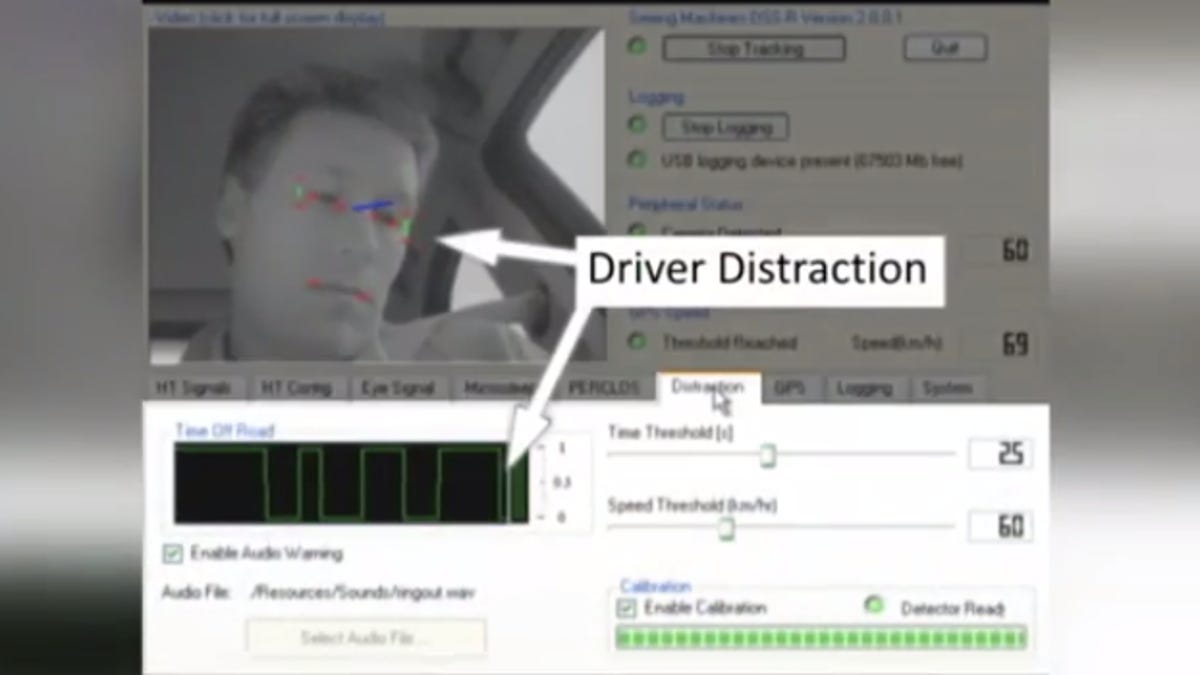GM to launch cars that nag you to death?
A report suggests that Detroit is to install technology that monitors your distracted driving. At what point does the tech itself become too much of a distraction?

Who doesn't love a backseat driver?
Watch out for that woman crossing the road, sweetums.
You're getting too close to the car in front, darling.
I imagined that there must be a tech company keen on transposing that sort of helpful passenger and inserting it into the bowels of the car.
So this morning, the Financial Times informs me that General Motors intends to launch cars that monitor your distracted driving.
Rumor has it that the company that brought you cars as exciting as, oh, I forget now, is installing tech that will track your eye and head movements.
The company providing that software is said to be Seeing Machines, which originated in Australia. The Seeing Machines website is bold in its confidence. The words "Saves Lives" adorn its home page. Its product it describes as "Smart Operator Monitoring Software."
The method? "Real-time monitoring and intervention, enabled by intelligent sensing technologies and analytics."
Seeing Machines clearly sees the future of cars in a similar way to Google. It offers this: "As passenger vehicles move closer to semi-autonomous operation, Seeing Machines is working with Tier 1 automotive suppliers and OEMs to bring this technology to reality."
There's a natural assumption that giving over control of your car to software is a good thing. The world, so the idea goes, will be a safer place because vehicles will move in rational and predictable ways.
Seeing Machines CEO Ken Kroeger told the FT: "Safety doesn't sell cars -- sexy sells cars. But once cameras are there, they can be expanded for other features and purposes."
Oh, they most certainly can. Just as being followed around the Web by the faceless has been a glorious aspect of digital expansion, so the idea of being permanently filmed while driving incites immediate joy.
At what point, though, does such technology become a nag? Could it be that this is an insidious way to take all the joy out of driving, so that the technologists' dream becomes a reality?
Seeing Machines believes that its technology could be used to identify the driver, so that no callow youth will try and "borrow" dad's car at midnight.
However, would you enjoy having the dilation of your pupils being monitored so that your car's software can determine how hard you're thinking?
I have contacted both GM and Seeing Machines to ask whether there is a point at which such wizard technology becomes more of a distraction that any real-world distraction we currently face. I will update should I receive a reply.
The guise of safety is being used to insert more and more technology that not only monitors us, but retains our data for future uses of indeterminate kinds. Could it be that, one day, your car's technology will automatically contact your insurer to warn of your persistent distracted driving?
One morning you'll receive an e-mail from, say, State Farm, telling you that your premium has gone up by $20 a month because you haven't been paying attention lately.
It'll be like you never left school.

